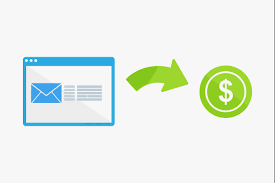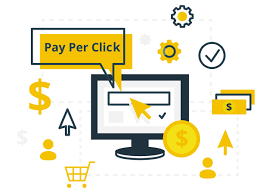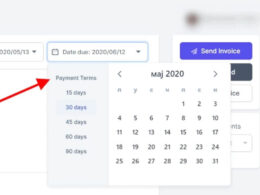Tired of running an 8-4 scheduled work lifestyle, try affiliate marketing. Business owners running a thriving business know there will always be ways they can improve on the growth of their business. In the same manner, workers and entrepreneurs alike can as well take to affiliate marketing as an alternate source of earning income.
Affiliate marketing is a popular means of driving sales and generating significant online revenue and is extremely beneficial to both the brands and affiliate marketers.
What is Affiliate Marketing?
According to Wikipedia, affiliate marketing is “a type of performance-based marketing in which a business rewards one or more affiliates for each visitor or customer brought by the affiliate’s own marketing efforts”.

Pat Flynn describes affiliate marketing as the “process of earning a commission by promoting other people’s (or company’s) products. You find a product you like, promote it to others and earn a piece of the profit for each sale that you make”.
Basically, you promote other people’s products, often through an affiliate network, earning a commission if people actually end up buying thanks to your marketing.
How it Works
Affiliate marketing works by sharing the responsibilities of product marketing among marketers. It leverages the abilities of different individuals to get a more effective marketing strategy while providing individual contributors with a share of the profit made.

Normally, affiliate marketing involves three different parties. They include:
- Product creator or Merchant.
- The affiliate or advertiser.
- The consumer.
- In other instances, a 4th party is sometimes introduced; The Affiliate Network.
Let’s examine each closely.
Product creator or Merchant

The seller or merchant be it a solo entrepreneur or big cooperation is a vendor with a product to sell. The product can either be a physical object, such as regular household utensils, or a digital product.
Sometimes referred to as the brand, the seller does not necessarily need to be involved in the marketing process. For instance, the seller could be an eCommerce merchant that plans on starting a drop-shipping business and wishes to reach new audiences by paying affiliate websites to promote his products.
The Affiliate or Publisher
Sometimes referred to as the publisher, the affiliate can be an individual or a company that wishes to market the seller’s product. Most times in an appealing manner to potential consumers of such products.
Simply stated, the affiliate promotes a product by appealing to consumers that such a product is of value to them. In the process, convincing them to purchase the said product. Should the consumer buy the product, the affiliate receives a share of the revenue made.
Affiliate marketers are often niche-specific and mostly market products that are specific to their niche. This creates a personified brand that helps the affiliate attract consumers who are most interested in that brand.
The Consumer
When consumers buy an affiliate marketed product, the seller and the affiliate share the profits. Whether the consumers know it or not, their purchases are the driving force of affiliate marketing.

Sometimes, affiliates often choose to disclose to consumers that they are receiving commission for the sales they make. Other times the consumer may be ignorant of the affiliate marketing process behind their purchase.
Either way, consumers rarely pay more for the products purchased via affiliate marketing. Most times, the affiliate’s share of the profit has been factored into the retail price. Affiliates share these products with potential audiences on social media, blogs, websites, and any other means available to them.
The Network
While it’s possible to promote a product online and just arrange a direct revenue share with the merchant, getting a network such as ClickBank or Commission Junction to take care of the payment and product delivery puts a more serious effect on your affiliate marketing.

Sometimes, affiliates have to go through an affiliate network just to be able to promote the product. This happens if the merchant only manages their affiliate program on that network.
The affiliate network also serves as a database for numerous products, out of which the affiliate marketer can choose whichever to promote. Not everyone considers the network part of the affiliate marketing equation. But in many cases, a network serves as an intermediary between the affiliate and the merchant.
Working Mechanism
With the terms explained, let’s see what exactly happens in the affiliate program:
- Anytime an affiliate joins a merchant’s program, he or she is given a unique ID and a specific URL to use when promoting the merchant’s product.
- The affiliate then includes the link in their blog content or other marketing efforts. The content basically includes a call to action for readers to click to find out more.
- When a consumer clicks on the affiliate link, a cookie identifying the affiliate is placed on their computer. The cookie ensures that the publisher is credited with the referral sale even if it occurs days or even weeks later.
- Should a buyer complete the sales process, the merchant checks the sales record for a cookie to identify the source of the referral.
- If the merchant finds a cookie with an affiliate ID, the affiliate is credited with the sale.
- The merchant makes reports available so that the affiliate can see their referrals (clicks) and sales.
- The merchant then goes ahead to pay the affiliate commission at the end of each payment period.
How to Find Affiliate Programs
It’s important to keep in mind that not every company offers affiliate programs. Some major brands even manage their own affiliate programs while most use an affiliate network.
An easy way to locate affiliate programs is to visit an affiliate marketplace or platform. Research your niche on the marketplace to find top-performing affiliate platforms that suit you. You can as well refer to our top 15 list of ClickBank alternatives.
Another way is to visit the websites of the products and services you use and wish to promote. You can inquire about their affiliate program if they have any. Large companies often have programs they promote on their site. Amazon Associates is a perfect example.
After finding a suitable affiliate program to join, intending affiliates can then proceed with these few steps.
- Decide what niche or niches to start affiliate marketing in
- Find and join an affiliate program
- Choose which offers to promote
- Obtain a unique affiliate link for each offer you chose
- Share your affiliate links on your blog, social media platforms, or website
- Collect a commission anytime there’s a conversion
Note: Commission rates vary and depend on the company and the offer. On the minimal side, you’ll earn around 5% of the sale but, with some deals, you can earn as much as 50%.
Affiliate Products to Promote
There is a wide range of products that can be promoted under affiliate marketing.
Digital Downloads
Digital downloads are generally online resources that your audience can access instantly, without waiting for a package to arrive via mail as with physical products.
They could be video or audio files, PDFs, ebooks, or even links to webpages where the content is hosted online.
Online, Hosting, and Professional Services
Concentrating on services that don’t limit your audience is very important when it comes to affiliate marketing. Selling products or services that are accessible to your entire audience no matter where they’re located is a good plan.
Simply put, don’t let geography limit your potential earnings. Focusing on online, hosting, or professional service providers will give you a large audience and increased earnings.
Online Courses
Online courses these days are popular although some consider it a subset of digital products. The bottom line is that the market for online courses is huge and global.
Affiliates can promote online courses on just about any topic. They range in price from free to costing thousands of dollars.
eCommerce Stores
Ecommerce stores have a large range of products for affiliate marketers to promote. Commissions on eCommerce products are fairly low. This is due to the production costs, storage costs as well as shipping.
However, if you have a favorite tool or a must-have gadget that will ease your readers’ lives then that’s a good product to promote. Even a high-quality recommendation that will thrill your audience is good to use.
In general, avoid commodity products that your consumers can buy anywhere; commissions on these are so small and you won’t make worthwhile money.
Affiliate Marketing Channels
Affiliates do not advertise their products in the same manner, although they share some common practices. Whichever manner they use, the main goal is to keep their audience engaged and receptive to promoted products. We will discuss some marketing channels affiliates usually leverage.
Influencers
An influencer is an individual who maintains the power to influence the purchasing choices of a sizeable segment of the consumers. Such individuals are in a great position to profit from affiliate marketing.
In most cases, they already have an impressive following and this makes it easy for them to direct consumers to the merchant’s products. They accomplish this via social media posts, blogs, and other interactions with their followers. The influencers then receive a portion of the profits they helped create.
Instagram has popularized Influencer marketing campaigns. And brands are eager to partner with influencers who are seen as experts or authorities in their chosen niches. Depending on the agreement reached, a campaign could consist of a series of product reviews with photos, account takeovers, or live videos.
Apps like Instasize where you can quickly edit and customize your campaign’s creatives in few minutes helps ensure brand recall and recognition.
Bloggers
A large chunk of affiliate marketers is bloggers as they excel at increasing a merchant’s conversions. This is sole because of their ability to rank organically in search engine queries.
The process is pretty much simple. A blogger reviews the product or service and then creates comprehensive content that promotes the product in a compelling way. He then shares this content and hence drives traffic back to the seller’s site for conversion.
The blogger is awarded for his or her influence in spreading the word about the value of the product, helping to improve the seller’s sales.
Email lists
Another popular yet older method of affiliate marketing is for the affiliate to build an email list over a period of time. Affiliates often use their different campaigns to collect emails en-masse and then send out emails regarding the products they are promoting.
While many consider this old and crude, email marketing is still a viable source of affiliate marketing income. Affiliates don’t necessarily have to create their own email lists, they can always leverage email newsletters that include links to products. They earn a commission after a consumer makes a purchase of the product.
The paid search focused microsites
Creating and monetizing microsites can also help affiliates generate a decent amount of sales. These sites are advertised within a partner site or on the sponsored listings of a search engine. Usually, they are distinct from the host’s organization’s main website.
By offering more tailored and relevant content to a certain audience, microsites can increase conversions due to their simple and straightforward call to action.
NOTE:
General Data Protection Regulation (GDPR) took effect on May 25, 2018, and is a set of regulations governing the use of personal data across the EU.
This is compelling affiliates to obtain user data via opt-in consent (updated privacy policies and cookie notices), even if they are not located in the European Union.
This new regulation should also guide you to follow FTC guidelines and it mandates that affiliates declare that they receive affiliate commissions from their recommendations.
Large media websites
Large media sites are designed to generate a huge amount of traffic at any time. These sites often focus on building an audience in the range of millions.
Large media websites market products to their huge audience through the use of banners and contextual affiliate links. One advantage of this is that it offers superior exposure and improves conversion rates. This results in increased revenue for both the merchant and the affiliate.
Getting paid with Affiliate Marketing
We’ve established that affiliate marketing is a quick and inexpensive manner of earning money without actually selling a product online. The question now is how exactly does an affiliate get paid after linking the seller to the consumer?
The end-user doesn’t always have to buy the product for the affiliate to get a kickback. All that is needed is for a conversion or a specified action to take place. And depending on the program, an affiliate’s contribution to the merchant’s sales can be measured differently.
Affiliates can get paid in various ways:
Pay per sale

This is the standard affiliate marketing structure and is the most common. With this program, the merchant pays the affiliate a commission of the sale price after the consumer purchases the product as a result of the affiliate’s marketing strategies.
To simply put, before the affiliate can get a reward, he or she must get the consumer to buy the product.
Pay per lead

This is a more complex system when compared to the pay-per-sale system. The Pay per lead program rewards the affiliate based on the conversion of leads.
The affiliate must convince the consumer to visit the merchant’s website and complete the desired action. This could be either filling out a contact form, signing up for a product trial, subscribing to a newsletter, or downloading software and files.
Pay per click

This program focuses on incentivizing traffic. The affiliate has to redirect consumers from their platform to the merchant’s website.
This means the affiliate must engage the consumer to move from the affiliate’s site to the merchant’s site. The web traffic redirect determines the affiliate’s pay.
Can I Become an Affiliate Marketer?
After all said and done, are you considering becoming an affiliate marketer? Or are you wondering what the benefits are if you eventually become one?

The truth is the benefits of affiliate marketing abound and it’s more than just the passive income it generates for you.
Passive income
Affiliate marketing allows you to earn money while you are away unlike a regular job that requires your presence before earning.
All you have to do is to invest a one-time effort into a campaign and you start seeing continuous returns as consumers purchase the product. You simply receive money for your completed work long after completing it.
No customer support
With the affiliate marketing structure, affiliates need not worry about customer support or customer satisfaction. Brands and individual sellers selling products or services have to deal with their consumers and ensure customer satisfaction.
The job description of the affiliate marketer is to link the merchant with the consumer. The seller deals with any consumer complaints after you receive your commission from the sale.
Work from home
Affiliate marketing offers the perfect escape route for anyone who hates going to the office. You’ll be able to launch campaigns and receive revenue from the products that sellers create.
You do all this by working from the comfort of your home. This is a job you can do without ever getting out of your bed.
Cost-effective
Unlike other businesses, affiliate marketing does not require a start-up fee or a large cash flow to finance the products being sold.
This doesn’t mean affiliate marketing doesn’t require cash. Sometimes promoting affiliate links might cost the affiliates. Affiliate marketing is a low-cost and less hassle business to engage in.
Starting this line of online work is relatively straightforward as there are no affiliate program fees to worry about.
Convenient and flexible
Affiliate marketing is essentially a form of freelancing. Affiliates totally have the freedom of setting their own goals and can redirect their path whenever they feel the need.
They can choose the products that interest them and even decide their own working hours. This convenience means affiliates can diversify portfolios.
Affiliate marketing removes company restrictions and regulations on other marketing channels. This gives affiliate marketers more flexibility.
Performance-Based Rewards
Affiliate marketing is purely based on the affiliate’s performance and unlike other jobs where you work hours and still earn the same amount. Your earnings equal the effort spent.
Perfecting your reviewing skills and creating engaging campaigns will help increase your revenue. Investing a decent amount of time and effort will bring about decent earning.
People typically search for information online and there’s a load of organic traffic you can leverage on search engines if you engage SEO properly. That’s the more reason for you to learn the basics of on-page SEO, keyword research, and link building.
Conclusion
Affiliate marketing is a lucrative and interesting business. While it might sound easy, it’s actually not and it requires adequate knowledge and persistence to make it into an online stream of income-earning business.
All it costs is you investing your time and by investing the hours upfront, you can continue to reap the rewards. Just don’t expect huge turnovers or the free pass to quit your 8 to 4 job.
The baseline, Affiliate marketing takes time and your reward is equal to your effort.











